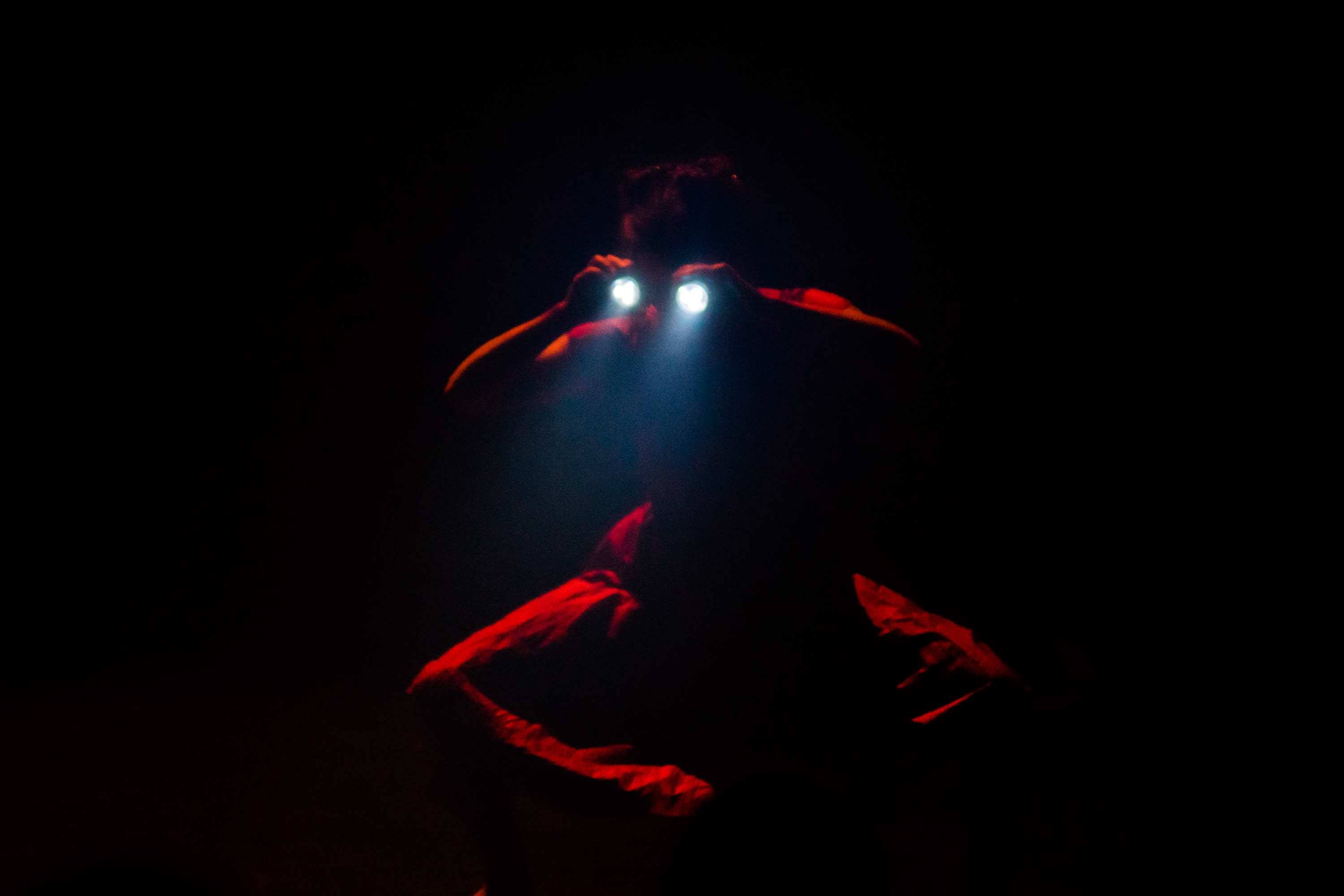Part physical theatre performance, part involuntary group therapy, The Birth of Death starts incrementally, with a ringing sound. Joanne Tremarco is in amongst us, sounding a bowl and asking if we can still hear the peal. It’s an evocative start, a strong metaphor, though the moment goes on far beyond its relevance. Of course, the moment at which we no longer hear the concentric rings of sound rippling out is indefinable, as with the moment we finally let go of a loved one who has died.
There is so much beauty in this show, so much honesty and bare nerve endings – but the expectations from the audience are too high. So many of us missed the memo that we were expected to arrive emotionally stripped, ready to reveal every tender nerve-ending to a room full of strangers. The level of participation demanded by The Birth Of Death is above the average and intimate in the extreme. Fully prepared, it must be a cathartic and rewarding experience, for the unexpecting it is invasive and dismaying. While it must be frustrating for an improviser to be given little to work with, as someone who has arrived expecting to watch a performance, to be sincerely berated for not having a finely-crafted tale of personal bereavement and a step-by-step survival guide for the recently bereaved is a bit much.
Tremarco is a beautiful performer with at times utterly precise comic timing. The real issue with this production is consent. As an audience we are never asked whether we are comfortable with the level of scrutiny, whether the question that has just been publicly thrust upon us is one we’re comfortable answering. Coming prepared to share in such an intimate way could clearly be rewarding, edifying, comforting. That needs to be far better communicated in the booking stage though. We are not all open books and we are not all sharers of intimate things. For those who are, this must be a beautiful experience. For those who aren’t, it verges on violating.
The staging is simple and all the better for it. The use of light and space evoke the very best of Karavan Ensemble productions. The observation of grief and its nature is astute and the physical evocations of its evolution are bordering exquisite at times. This production could be something very special, and it’s possible it is for the right people. For a broader and unsuspecting audience, it fails to account for people’s reasonable reservations. One of the requirements of improvisation is to be able to carry on without quality audience input and that is what was really lacking here. An inability, or worse, unwillingness, to move on unless the audience gave the right answer made the show twenty minutes too long and several degrees too pushy. A strong premise perhaps, but a weak execution in the end.

